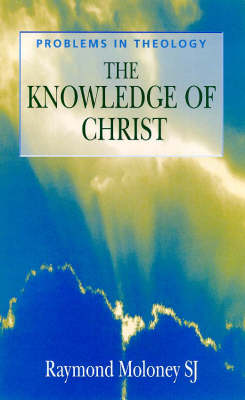Problems in Theology S.
2 total works
The question of what was in Christ's mind and heart during his life on earth is one which people frequently ask. The complexity of the issues which such a question raises is often not appreciated, yet it is a subject which affects how other apparently unrelated questions, such as the ordination of women and the nature of church and sacrament, are considered. This work provides a comprehensive analysis of this historically controversial issue. It is a journey through the history of the discussion, not hesitating to enter, as the need arises, into different branches of study, such as exegesis, patristics and philosophy, and finally focusing on contemporary discussions. After considering the emergence of the problem in the New Testament, the author describes the ebb and flow of opinion in the patristic and medieval periods, which led to the formation of a consensus against ignorance in Christ. This book discusses how this consensus has come to be questioned and qualified, first by Protestant theology, and then, in its own way, by Catholic theology. Special attention is given to the positions of Karl Rahner, Hans Urs von Balthasar and Bernard Lonergan.
The book concludes with the author's personal approach, drawing on the insights of transcendental theology, but stressing the topic's ultimate mysteriousness.
The book concludes with the author's personal approach, drawing on the insights of transcendental theology, but stressing the topic's ultimate mysteriousness.
At the time of the Second Vatican Council, one of the central issues in theological discussion was the question of the Eucharist, particularly as regards the meaning of the Real Presence. In the following years the theology of the Eucharist entered a quieter period, and it is only recently that significant writing on the subject has got under way once again. This book makes a significant introduction to this new wave of reflection, drawing on these recent advances in theology and liturgy. In so doing Raymond Moloney draws together the fundamental tenets of the Eucharist and projects a synthesis of it with the rest of the faith and life.

